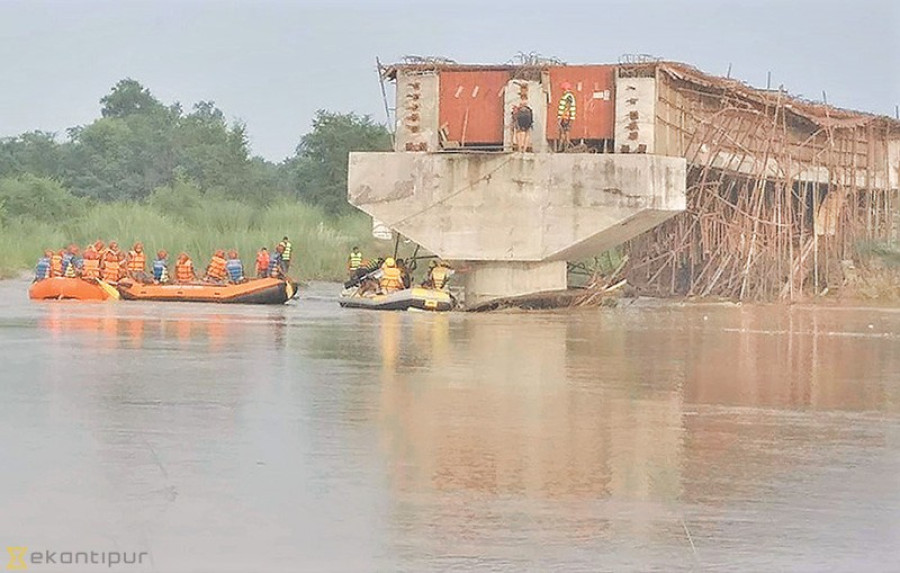National
Government to slash contractors’ advance by half
The decision comes on the heels of complaints regarding public contractors misusing advance pay, officials say.
Prithvi Man Shrestha
The government has decided to halve the mobilisation advance being provided to public contractors as the Cabinet on Thursday amended the Public Procurement Regulation for the third time in two and a half months, two ministers confirmed to the Post.
Minister for Education, Science and Technology Giriraj Mani Pokhrel confirmed that there has been a Cabinet decision to reduce the mobilisation advance to maximum 10 percent from the existing 20 percent of the contract amount amid complaints regarding the misuse of advance payment.
“The government agencies will initially provide five percent of the contract amount as a mobilisation advance. An additional five percent will be issued after evaluating the project’s progress,” Pokhrel told the Post.
The amendment regulation will come into effect once the government publishes the amendment in the Nepal Gazette.
It will be the eighth amendment to the regulation. The seventh amendment to the regulation was made on June 6— less than a month after the regulation was amended for the sixth time—after the contractors complained about a number of provisions.
The government’s latest step has come at a time when the contractors are facing blame for the delay in a number of development projects.
According to Pokhrel, the government hopes to curb misuse of funds by limiting the mobilisation advance.
Another minister on condition of anonymity said that the mobilisation advance was reduced also to determine that the concerned contractor is financially capable not just on papers.
The Commission for Investigation of Abuse of Authority, which has been investigating into more than 50 sick development projects, has also found instances where contractors had misused mobilisation advance.
In an interview with the Post last week, CIAA Chief Commissioner Nabin Ghimire said that some contractors have been found investing the mobilisation advance in real estate businesses instead of using the amount in the projects they were contracted.
Last year, the anti-graft body had conducted a study on sick projects and found that there were 1,848 such projects where the state has invested Rs118 billion in capital.
Meanwhile, public contractors have expressed disappointment over the decision. They say the move could prove counterproductive for the government.
Rabi Singh, president of the Federation of Contractors' Association of Nepal, told the Post that reducing the mobilisation advance would increase the cost for the contractors and the government also would not be able to spend its budget in time.
The Cabinet has also decided to reduce the bid threshold for projects in which foreign contractors are not allowed to participate. The threshold has been reduced to Rs1 billion from Rs2 billion.
The federation had lobbied for the reduction of bid threshold stipulated in the sixth amendment, arguing that it worked only in favour of a handful of big contractors, thus limiting competition.
There are a limited number of contractors capable of bidding on projects in the range of Rs1 billion, according to Singh.
The provision of bid capacity for contractors was removed in the seventh amendment.
Minister Pokhrel said the latest amendment has made provision about not awarding contract to the bidder who has already occupied enough projects. “A certain standard has been set for this,” he told the Post.
***
What do you think?
Dear reader, we’d like to hear from you. We regularly publish letters to the editor on contemporary issues or direct responses to something the Post has recently published. Please send your letters to [email protected] with "Letter to the Editor" in the subject line. Please include your name, location, and a contact address so one of our editors can reach out to you.




 9.83°C Kathmandu
9.83°C Kathmandu














